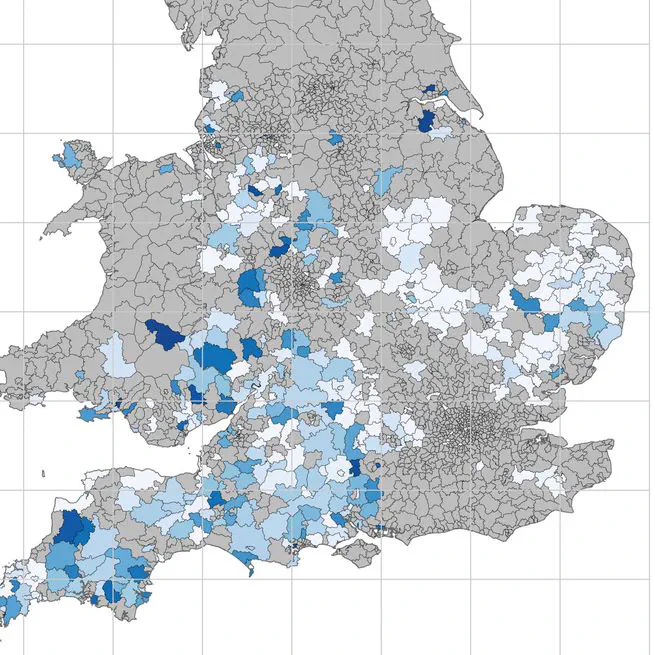
Abstract Can attitudes towards minorities, an important cultural trait, be changed? We show that the presence of African American soldiers in the UK during World War II reduced anti-minority prejudice, a result of the positive interactions which took place between soldiers and the local population. The change has been persistent: in locations in which more African American soldiers were posted there are fewer members of and voters for the UK’s leading far-right party, less implicit bias against blacks and fewer individuals professing racial prejudice, all measured around 2010. Our results point towards intergenerational transmission from parents to children as the most likely explanation.
Jan 1, 2021
Abstract μCap is a software package (citeware) for economic experiments enabling experimenters to analyze emotional states of subjects using z-Tree and FaceReader™. μCap is able to create videos of subjects on client computers based on stimuli shown on screen and restrict recording material to relevant time frames. Another feature of μCap is the creation of time stamps in csv format at prespecified screens (or at prespecified points in time) during the experiment, measured on the client computer. The software makes it possible to import these markers into FaceReader™ easily. μCap is the first program that significantly simplifies the process of connecting z-Tree and FaceReader™ with the additional benefit of extremely high precision. This paper describes the usage, underlying principles as well as advantages and limitations of μCap. Furthermore, we give a brief outlook of how μCap can be beneficial in other contexts.
Aug 1, 2019
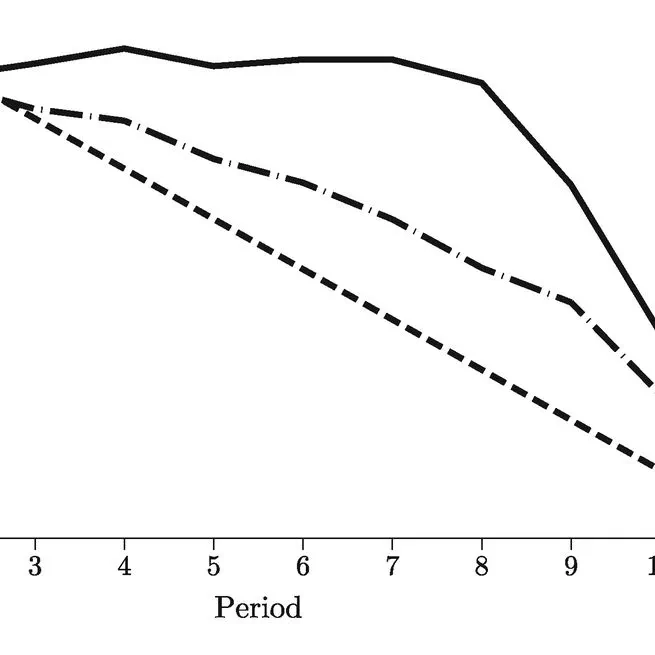
Abstract One explanation for overpricing on asset markets is a lack of traders’ self-control. We implement the first experiment to address the causal relationship between self-control and systematic overpricing on financial markets. Our setup detects some of the channels through which low individual self-control could transmit into irrational exuberance in markets. Our data indicate a large direct effect of reduced self-control on market overpricing. Low self-control traders report stronger emotions after the market.
Jun 1, 2019
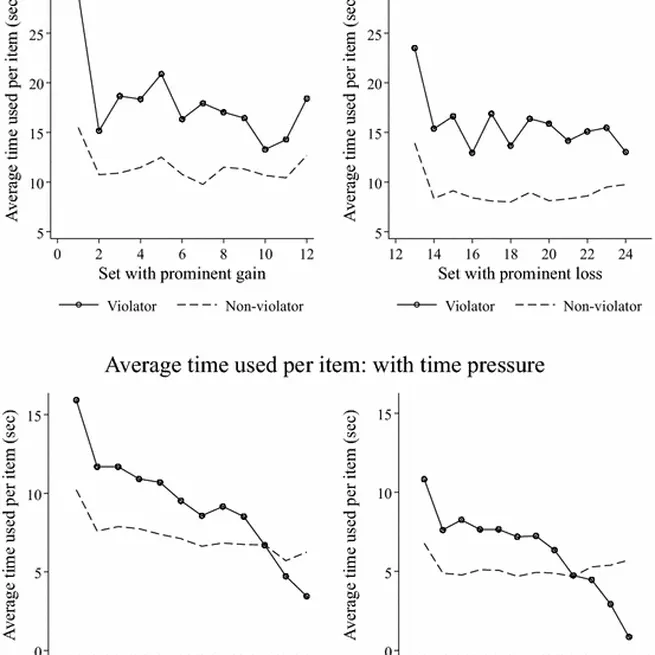
Abstract Time pressure is a central aspect of economic decision making nowadays. It is therefore natural to ask how time pressure affects decisions, and how to detect individual heterogeneity in the ability to successfully cope with time pressure. In the context of risky decisions, we ask whether a person’s performance under time pressure can be predicted by measurable behavior and traits, and whether such measurement itself may be affected by selection issues. We find that the ability to cope with time pressure varies significantly across decision makers, leading to selected subgroups that differ in terms of their observed behaviors and personal traits. Moreover, measures of cognitive ability and intellectual efficiency jointly predict individuals’ decision quality and ability to keep their decision strategy under time pressure.
Mar 15, 2019
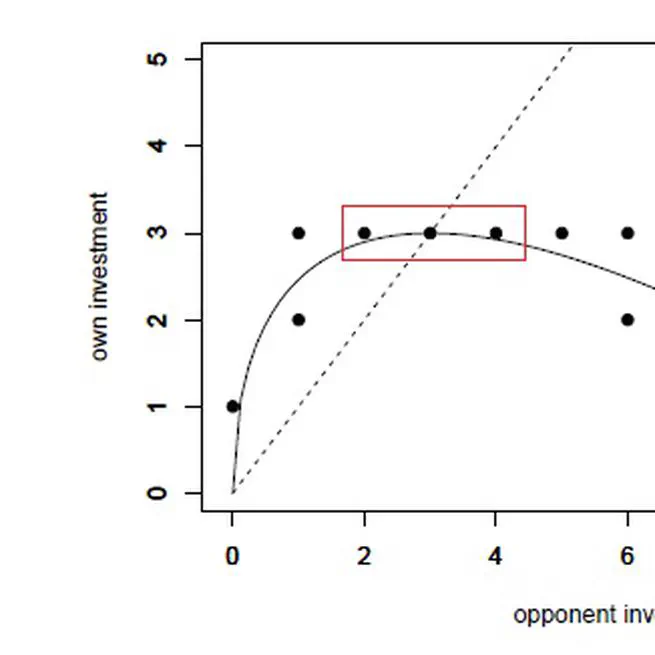
Abstract Employees are exposed to different sources of uncertainty when competing in tournaments. First, they face the outcome risk of winning or losing. Second, they face prize risk in promotion tournaments due to the stochastic option value of future promotion possibilities. In addition, employees face strategic uncertainty, since they compete against a performance standard that is endogenously determined by the effort of their opponent. This paper investigates empirically whether and how these sources of uncertainty affect incentives to provide effort. In the absence of strategic uncertainty, we find that outcome risk strongly increases average effort, while prize risk does not affect effort on average. Averages hide substantial variation in individual responses to outcome and prize risk that depend on gender as well as on second- and thirdorder risk attitudes. We also find that agents reduce effort in response to strategic uncertainty, particularly in the presence of outcome or prize risk.
Dec 17, 2017
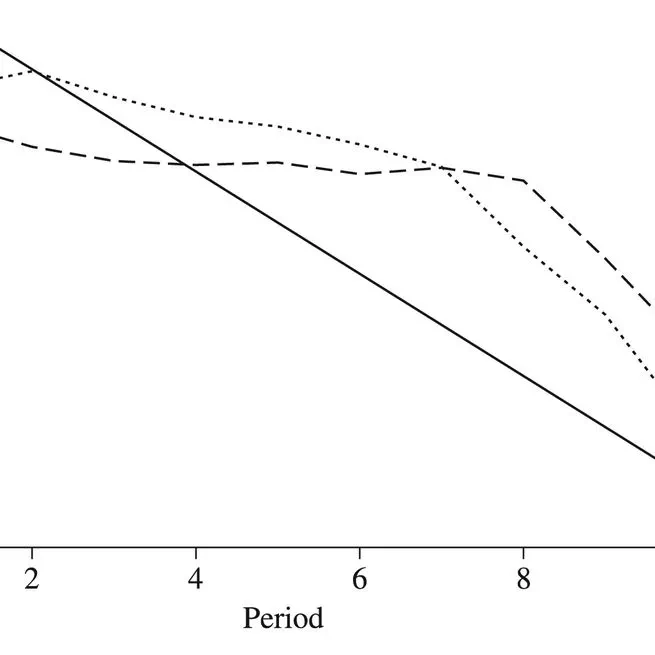
Abstract We assess the effects of a stake size variation on experimental asset markets. Our results show that a fivefold increase in stake size leads to higher trading frequencies. Mispricing and overpricing, however, are not fundamentally different for different stake sizes.
May 1, 2017